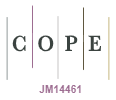Technology in the curriculum of early childhood education in Brazil: analysis of legal documents
DOI:
https://doi.org/10.5585/eccos.n65.24611Keywords:
child, educational policy, educational technology, information and communication technology, teaching.Abstract
The purpose of this research is to identify, in Brazilian legal documents and research, proposals for the use of technology in early childhood education. In addition to a literature review, this study codified and categorized legal documents that include curriculum guidelines for early childhood education. The results pointed to a gap in the literature on the subject. Documents prepared by the Municipal Secretary of Education of São Paulo include more guidelines for incorporating technologies in early childhood education than federal documents. Children are born and live today immersed in digital technologies. However, these technologies are still little used in school environments. There is resistance to using technologies with children, a lack of resources to ensure adequate infrastructure, and a lack of continuing education of educators and policymakers. Several documents analyzed present a critical view on the incorporation of these technologies into early childhood education, including the concern with the time of exposure to screens, the submission to the logic of the market and the capitalism of surveillance, security and data protection, through the elaboration of a concept of digital citizenship. There is a divergence in the documents regarding the potential of technologies to reduce or widen the digital divide. Future work may include other documents to enrich the analysis.
Downloads
References
BENNETT, Sue; MATON, Karl; KERVIN, Lisa. The ‘digital natives’ debate: A critical review of the evidence. British Journal of Educational Technology, v. 39, n. 5, p. 775-786, 2008. https://doi.org/10.1111/j.1467-8535.2007.00793.x.
BRASIL. Constituição da República Federativa do Brasil. Brasília: Senado Federal, 1988. Inclui as Emendas Constitucionais. Disponível em: http://www.planalto.gov.br/ccivil_03/constituicao/constituicao.htm. Acesso em: 22 set. 2022.
BRASIL. Lei nº 9.394, de 20 de dezembro de 1996. Estabelece as diretrizes e bases da educação nacional. Brasília, 1996. Disponível em: http://www.planalto.gov.br/ccivil_03/leis/l9394.htm. Acesso em: 22 set. 2022.
BRASIL. Ministério da Educação (MEC). Base Nacional Comum Curricular. Brasília, DF, 2018. Disponível em: http://basenacionalcomum.mec.gov.br/images/BNCC_EI_EF_110518_versaofinal_site.pdf. Acesso em: 1 set. 2022.
BRASIL. Ministério da Educação (MEC). Base Nacional Comum Curricular: Computação na Educação Básica - Complemento à BNCC. Brasília, 2022a.
BRASIL. Ministério da Educação (MEC). Conselho Nacional de Educação / Câmara de Educação Básica. Parecer CNE/CEB nº: 2/2022. Normas sobre Computação na Educação Básica – Complemento à Base Nacional Comum Curricular (BNCC). Brasília: MEC, SEB, 2022b. Disponível em: http://portal.mec.gov.br/index.php?option=com_docman&view=download&alias=235511-pceb002-22&category_slug=fevereiro-2022-pdf&Itemid=30192. Acesso em: 30 maio 2023.
BRASIL. Ministério da Educação (MEC). Secretaria de Educação Básica. Diretrizes curriculares nacionais para a educação infantil. Brasília: MEC, SEB, 2010.
BRASIL. Ministério da Educação e do Desporto. Secretaria de Educação Fundamental (SEF). Referencial curricular nacional para a educação infantil. Brasília, 1998. 3v.
COUNCIL OF EUROPE. Guidelines to respect, protect and fulfil the rights of the child in the digital environment. Recommendation CM/Rec(2018)7 of the Committee of Ministers. 2018. Disponível em: https://rm.coe.int/guidelines-to-respect-protect-and-fulfil-the-rights-of-the-child-in-th/16808d881a. Acesso em: 6 mar. 2023.
HELSPER, Ellen Johanna; EYNON, Rebecca. Digital natives: where is the evidence?. British Educational Research Journal, v. 36, n. 3, p. 503-520, 2010. DOI: https://doi.org/10.1080/01411920902989227.
NASCIMBENI, Fabio; VOSLOO, Steven. Digital Literacy for Children: Exploring Definitions and Frameworks. Scoping Paper. New York: UNICEF Office of Global Insight and Policy, 2019. Disponível em: https://www.unicef.org/globalinsight/media/1271/file/%20UNICEF-Global-Insight-digital-literacy-scoping-paper-2020. pdf. Acesso em: 6 mar. 2023.
PRENSKY, Marc. Digital natives, digital immigrants. On the Horizon, v. 9, n. 5, p. 1-6, 2001. Disponível em: https://www.marcprensky.com/writing/Prensky%20-%20Digital%20Natives,%20Digital%20Immigrants%20-%20Part1.pdf. Acesso em: 21 maio 2023.
PRENSKY, Marc R. From digital natives to digital wisdom: Hopeful essays for 21st century learning. Thousand Oaks, CA: Corwin, 2012.
RAABE, André L. A.; BRACKMANN, Christian P.; CAMPOS, Flávio R. Currículo de referência em tecnologia e computação: da educação infantil ao ensino fundamental. São Paulo: CIEB, 2018. E-book em pdf.
SALDAÑA, Johnny. The coding manual for qualitative researchers. 3rd ed. Thousand Oaks, CA: Sage, 2016.
SÃO PAULO (SP). Secretaria Municipal de Educação (SME). Diretoria de Orientação Técnica (DOT). Orientações curriculares: expectativas de aprendizagens e orientações didáticas para Educação Infantil. São Paulo, 2007.
SÃO PAULO (SP). Secretaria Municipal de Educação (SME). Diretoria de Orientação Técnica (DOT). Divisão de Orientação Técnica - Educação Infantil. O uso da tecnologia e da linguagem midiática na Educação Infantil. São Paulo, 2015a. Disponível em: http://portal.sme.prefeitura.sp.gov.br/Portals/1/Files/17138.pdf. Acesso em: 6 out. 2022.
SÃO PAULO (SP). Secretaria Municipal de Educação. Coordenadoria Pedagógica. Currículo da cidade: Educação Infantil. São Paulo: SME/COPED, 2019. PDF. Disponível em: https://educacao.sme.prefeitura.sp.gov.br/wp-content/uploads/2019/07/51927.pdf. Acesso em: 1 set. 2022.
SÃO PAULO (SP). Secretaria Municipal de Educação. Diretoria de Orientação Técnica. Currículo integrador da infância paulistana. São Paulo: SME/DOT, 2015b. Disponível em: https://www.sinesp.org.br/images/28_-_CURRICULO_INTEGRADOR_DA_INFANCIA_PAULISTANA.pdf. Acesso em: 1 set. 2022.
SÃO PAULO (SP). Secretaria Municipal de Educação. Diretoria de Orientação Técnica. Indicadores de Qualidade da Educação Infantil Paulistana. São Paulo: SME / DOT, 2016.
SOCIEDADE BRASILEIRA DE COMPUTAÇÃO (SBC). Diretrizes para ensino de Computação na Educação Básica. 2019. Disponível em: https://www.sbc.org.br/educacao/diretrizes-para-ensino-de-computacao-na-educacao-basica. Acesso em: 29 maio 2023.
SOCIEDADE BRASILEIRA DE PEDIATRIA (SBP). Departamento de Adolescência. Manual de Orientação: saúde de crianças e adolescentes na era digital. n. 1. Rio de Janeiro: SBP, 2016. Disponível em: https://www.sbp.com.br/fileadmin/user_upload/2016/11/19166d-MOrient-Saude-Crian-e-Adolesc.pdf. Acesso em: 5 mar. 2023.
SHIN, Tae Seob; HWANG, Hyeyoung; PARK, Jonghwi; TENG, Jian Xi; DANG, Toan. Digital Kids Asia-Pacific: Insights into Children’s Digital Citizenship. Paris: United Nations Educational, Scientific and Cultural Organization; Bangkok: Bangkok Office, 2019. Disponível em: https://unesdoc.unesco.org/ark:/48223/pf0000367985. Acesso em: 6 mar. 2023.
UNITED NATIONS. Transforming our World: The 2030 Agenda for Sustainable Development. New York, 2015. Disponível em: https://sdgs.un.org/2030agenda. Acesso em: 22 maio 2023.
UNITED NATIONS EDUCATIONAL, SCIENTIFIC AND CULTURAL ORGANIZATION (UNESCO). UNESCO ICT Competency Framework for Teachers; Version 3.0. Unesco: Paris, France, 2018. Disponível em: https://unesdoc.unesco.org/ark:/48223/pf0000265721. Acesso em: 5 mar. 2023.
WHITE, David S.; LE CORNU, Alison. Visitors and Residents: A new typology for online engagement. First Monday, [S. l.], v. 16, n. 9, 2011. https://doi.org/10.5210/fm.v16i9.3171.
ZEVENBERGEN, Robyn. Digital natives come to preschool: Implications for early childhood practice. Contemporary Issues in Early Childhood, v. 8, n. 1, p. 19-29, 2007. https://doi.org/10.2304/ciec.2007.8.
Downloads
Published
How to Cite
Issue
Section
License
Copyright (c) 2023 Dos autores

This work is licensed under a Creative Commons Attribution-NonCommercial-ShareAlike 4.0 International License.
- Abstract 562
- PDF (Português (Brasil)) 754






